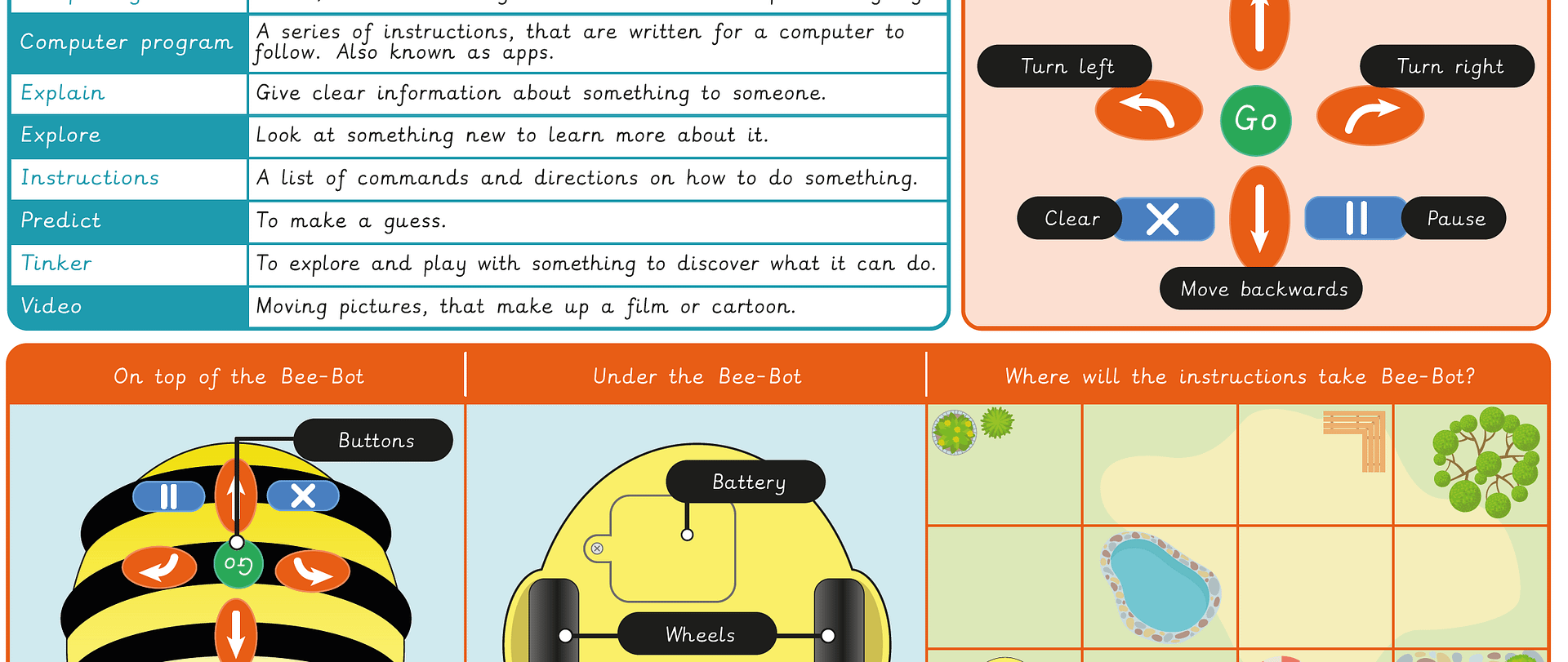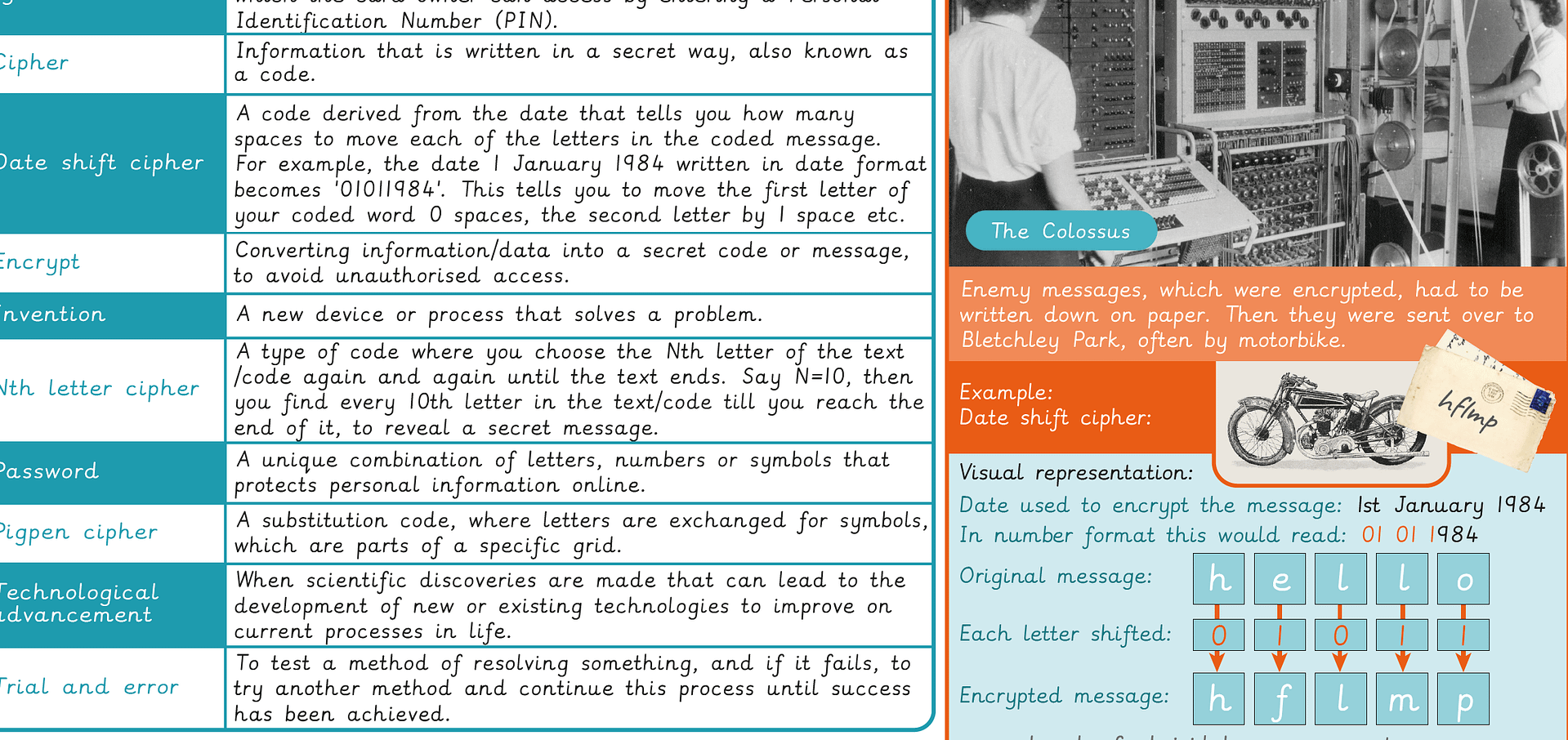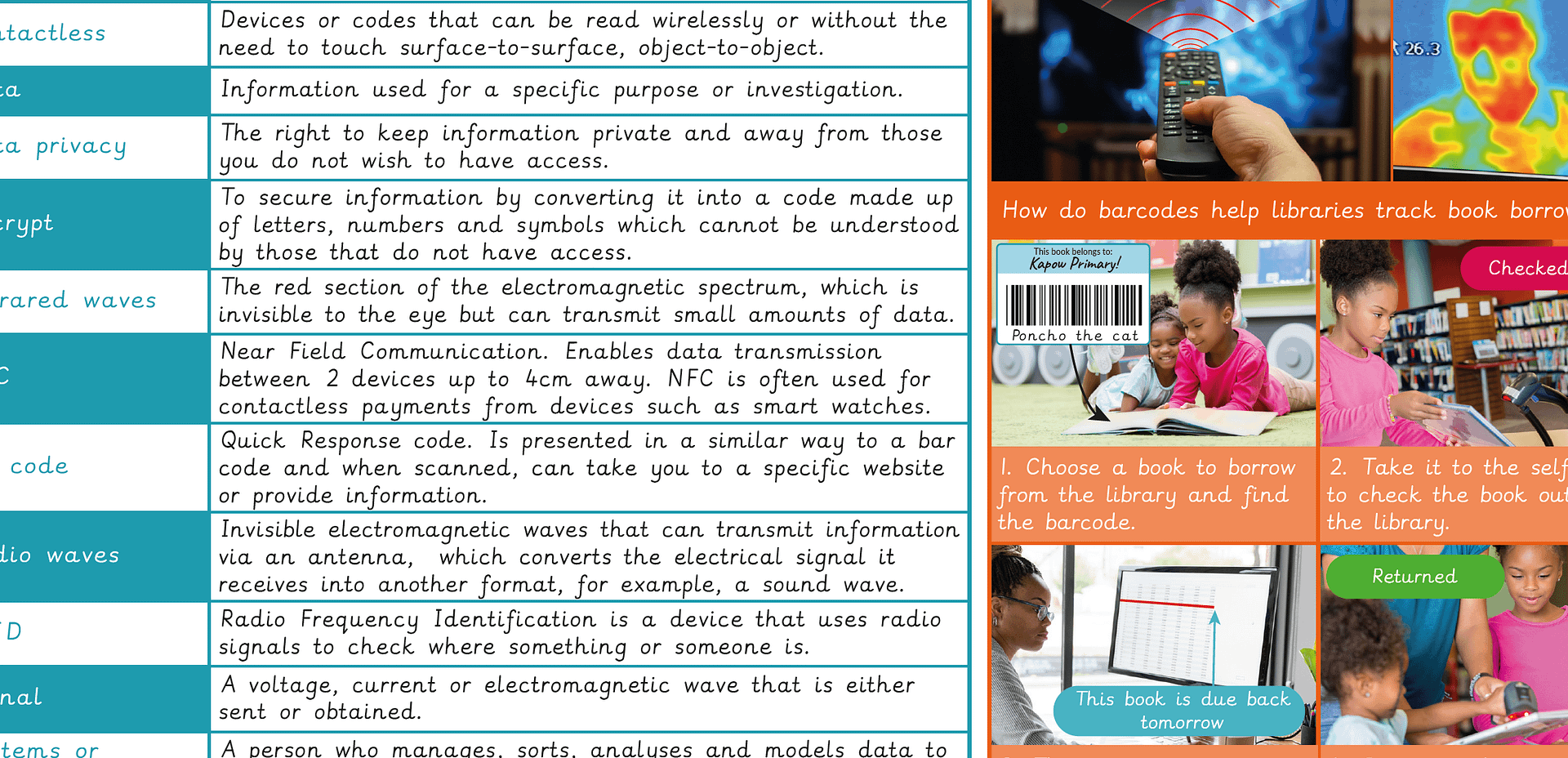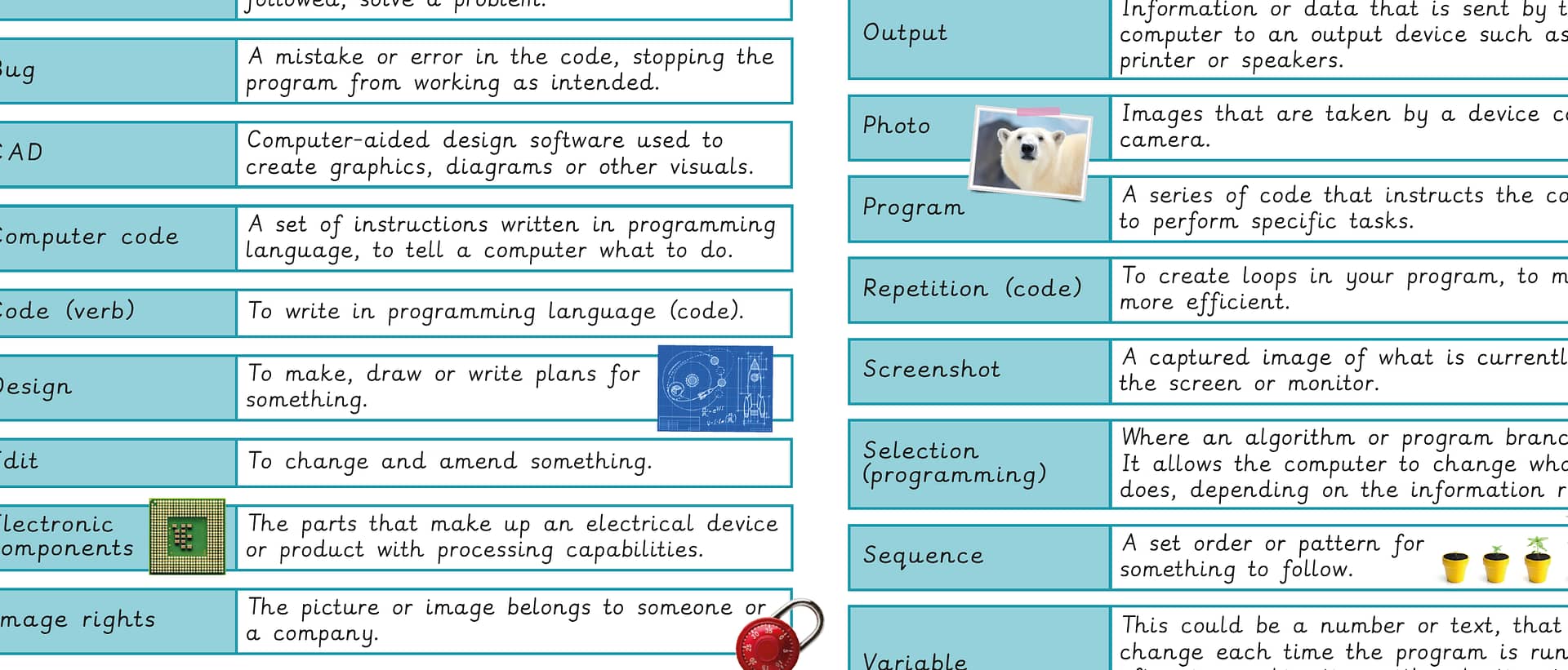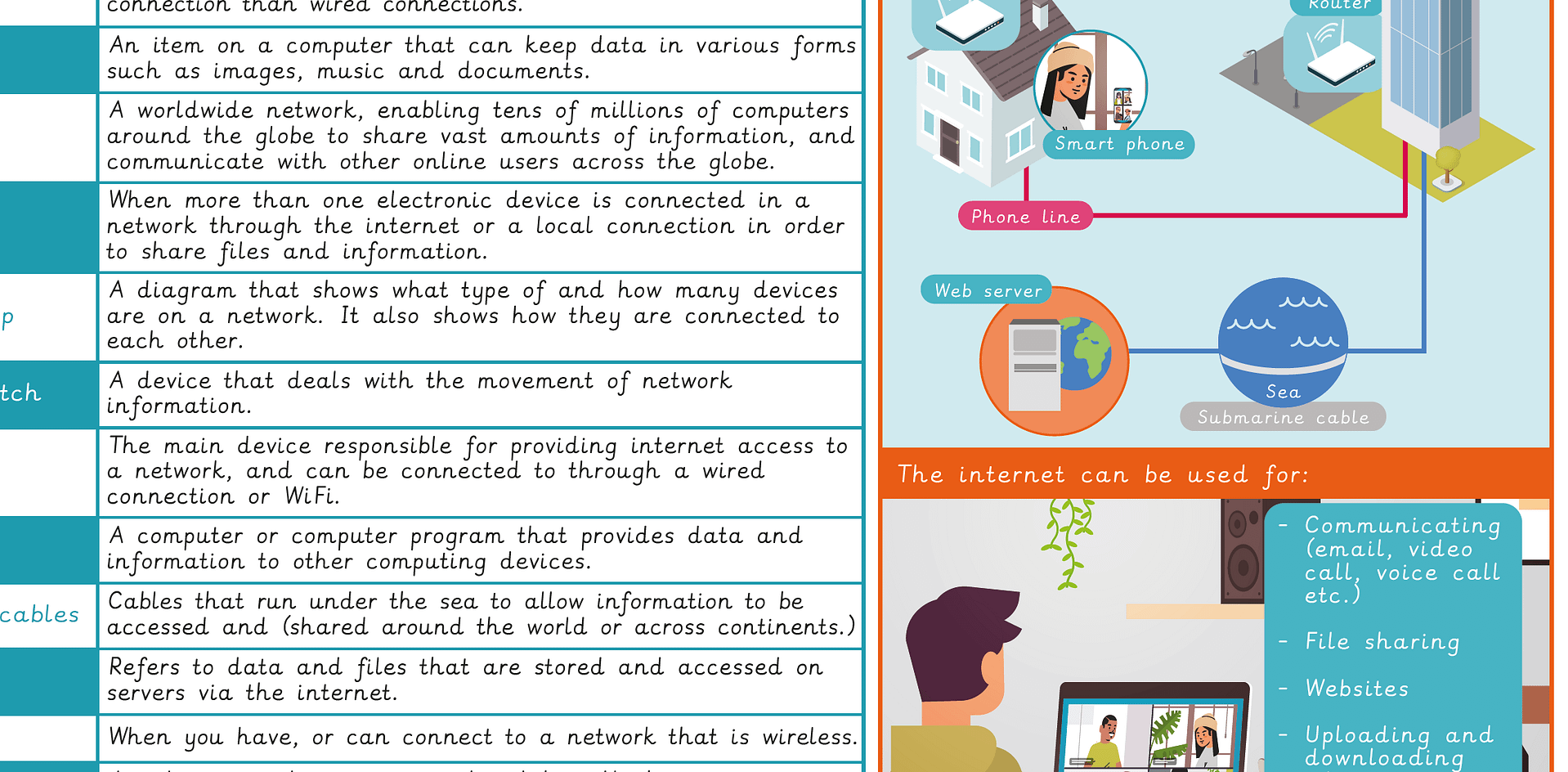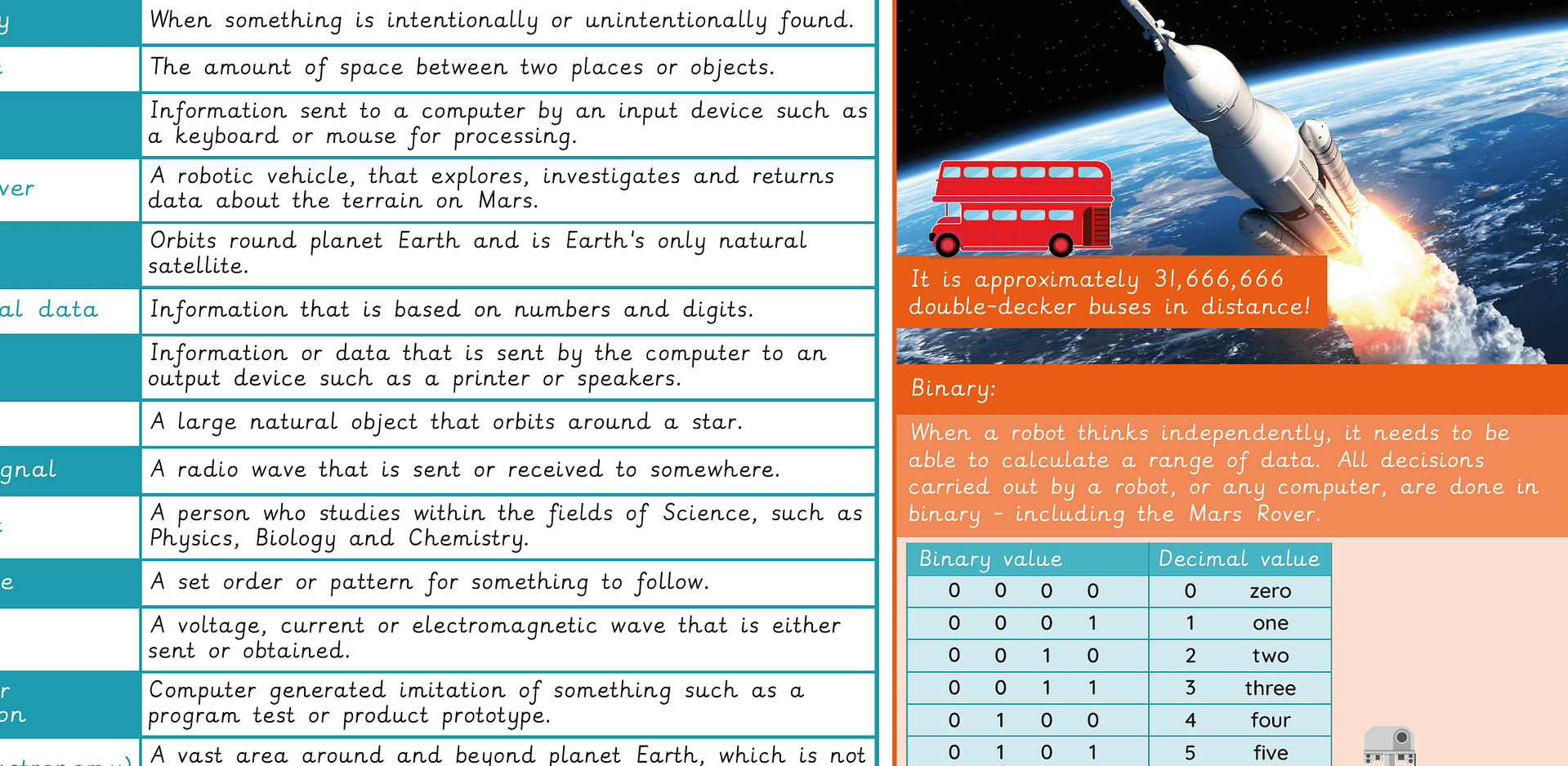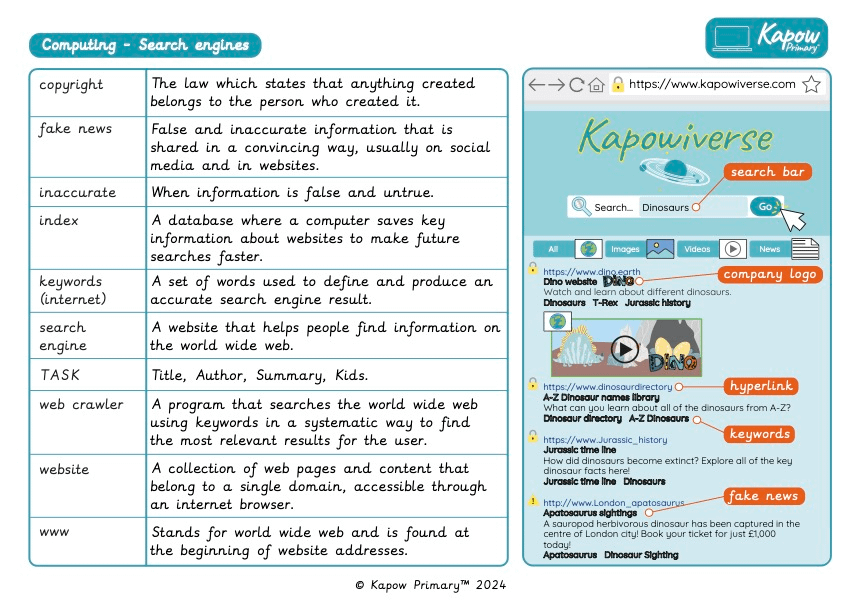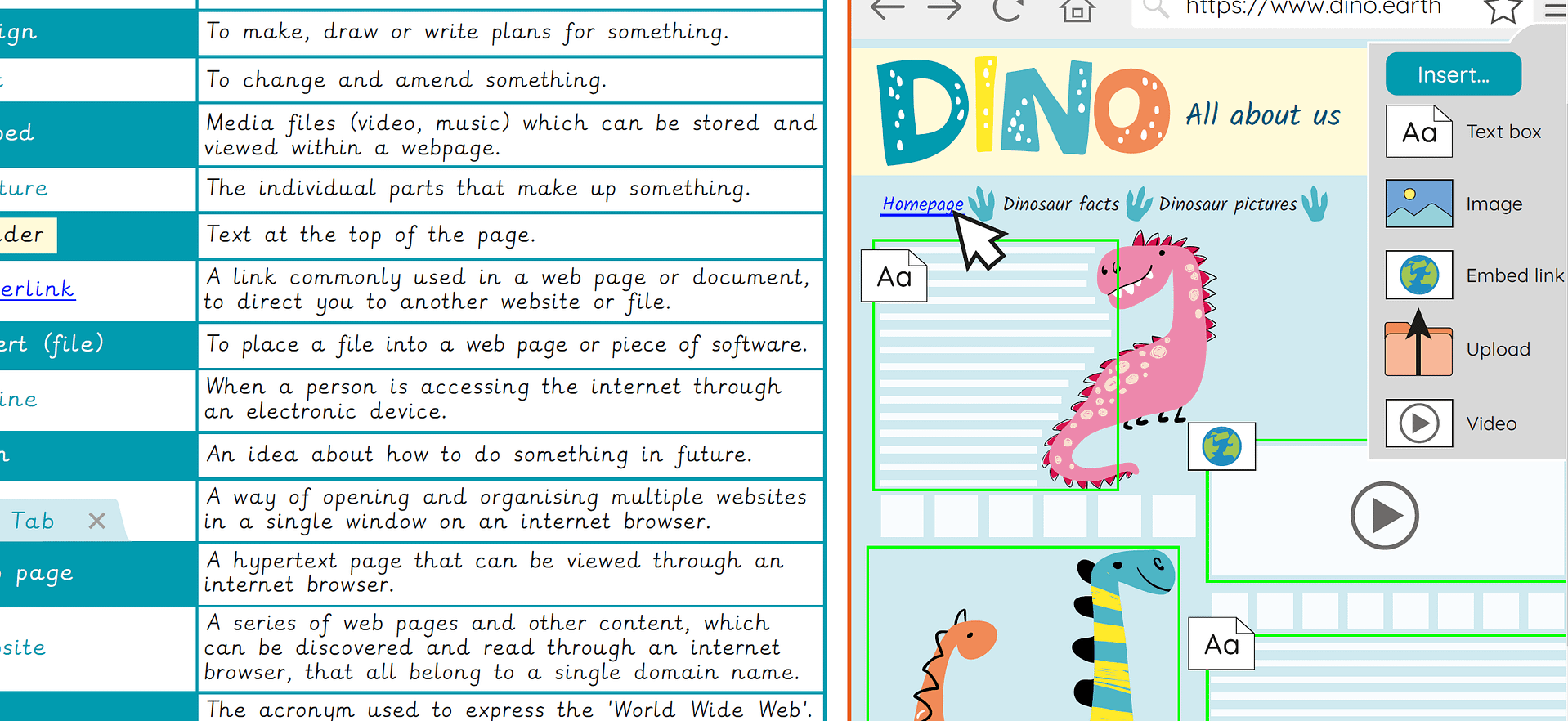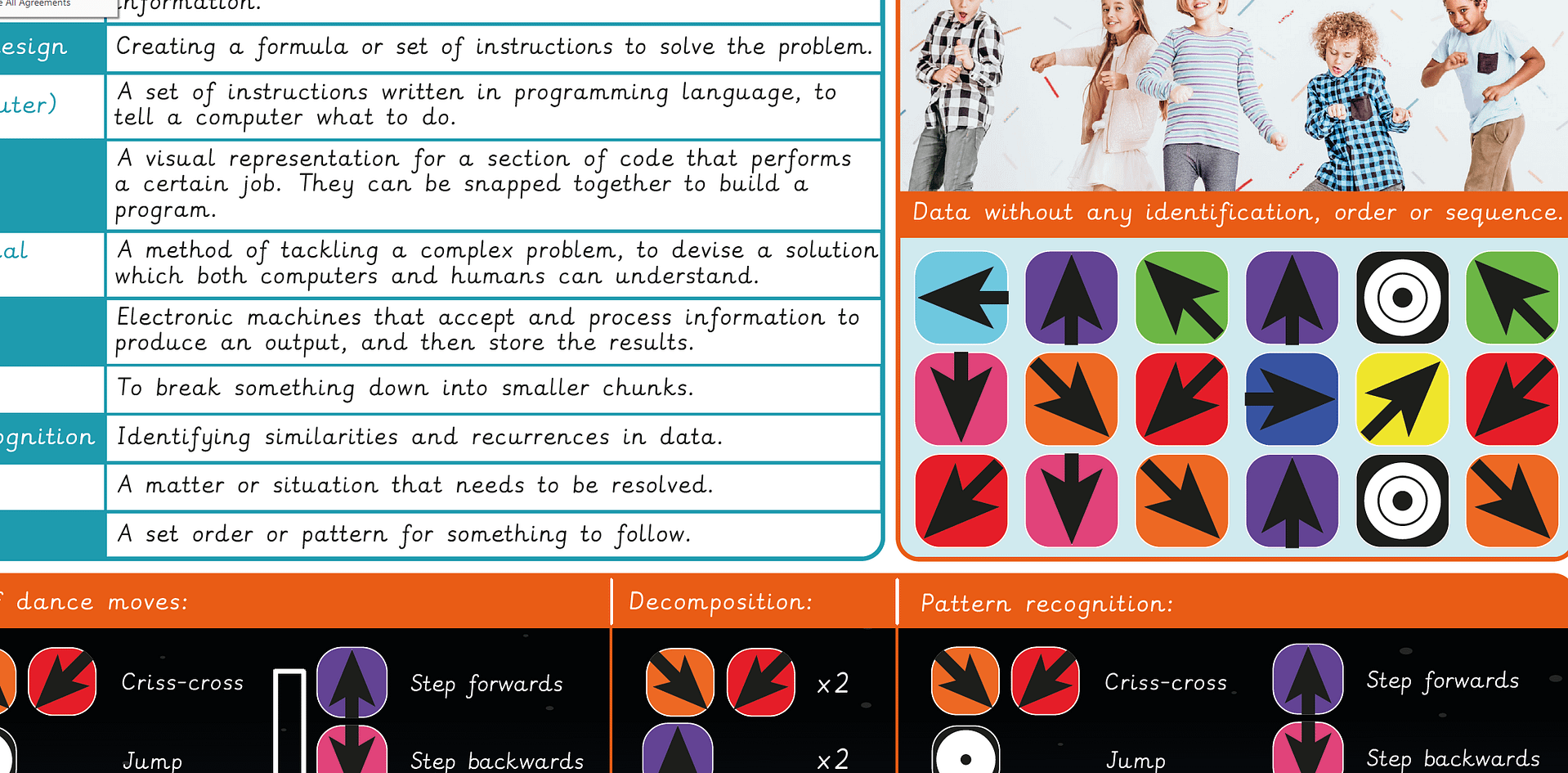This knowledge organiser is from our key stage 1 Computing unit. It is suitable for printing for each pupil but can also be printed on A3 for classroom display. It contains the unit’s key vocabulary as well as information to help recall key concepts.
Teaching resource: Knowledge organiser
Knowledge organiser: Computing – Y6 Bletchley Park
This Year 6 Computing knowledge organiser is suitable for printing for each pupil, but can also be printed on A3 for classroom display. It contains the key vocabulary for the unit as well as information to help recall key concepts.
Knowledge Organiser – Computing Y6: Big Data 1
A Knowledge organiser that captures the essential knowledge and skills learnt throughout the Year 6 Computing unit Big Data 1.
This resource is designed to support the pupils as they explore how large-scale data collection and transmission systems operate in everyday life. It highlights key vocabulary, technologies and concepts, such as data privacy, encryption, contactless systems and the role of analysts in managing and interpreting data. The pupils will also learn about the use of barcodes, QR codes, RFID and NFC to store and transfer information efficiently. The organiser explains how infrared waves and radio waves enable wireless communication, powering technologies such as remote controls, contactless payments and thermal imaging cameras. It also outlines the process of data encryption, showing how information can be secured using codes that prevent unauthorised access. Through real-world examples, such as how libraries use barcodes to track book borrowing, the pupils will develop an understanding of how businesses and institutions use big data to improve efficiency. The role of a systems or data analyst is introduced, helping the pupils recognise the importance of sorting, modelling and analysing data to solve problems.
Knowledge organiser: Computing – Y6 Inventing a product
This knowledge organiser is from our key stage 2 Computing unit. It is suitable for printing for each pupil but can also be printed on A3 for classroom display. It contains the key vocabulary for the unit and information to help recall key concepts. For more information, visit our Computing curriculum page.
Knowledge organiser: Computing – Computing systems and networks 1: Networks
This knowledge organiser is suitable for printing for each pupil, but can also be printed on A3 for classroom display. It contains the key vocabulary for the unit as well as information to help recall key concepts.
Knowledge organiser: Computing – Y5 Mars Rover 1
This knowledge organiser is suitable for printing for each pupil, but can also be printed on A3 for classroom display. It contains the key vocabulary for the unit as well as information to help recall key concepts.
Knowledge organiser: Computing – Y5 Search engines
This Knowledge organiser is suitable for printing for each pupil, but can also be printed on A3 for classroom display. It contains the key vocabulary for the unit as well as information to help recall key concepts. This resource is part of our upper Key stage 2 Computing curriculum.
Knowledge organiser: Computing – Y4 Website design
This knowledge organiser is suitable for printing for each pupil, but can also be printed on A3 for classroom display. It contains the key vocabulary for the unit as well as information to help recall key concepts.
Knowledge organiser – Computing Y4: Computational thinking
A Knowledge organiser that captures the essential knowledge and skills learnt throughout the unit Computing, Year 4, Computational Thinking.
This resource is designed to support the children as they explore computational thinking. It highlights key vocabulary and concepts, including abstraction, decomposition, pattern recognition and algorithm design. The resource introduces code blocks and the role of sequencing in solving problems using logical steps. It helps the children understand how computers process instructions and encourages them to break down problems into manageable parts. It is perfect for consolidating essential knowledge and fostering problem-solving skills in programming and everyday situations.

